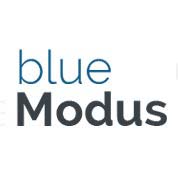
Recently, BlueModus made a $500 donation to the Multidisciplinary Association for Psychedelic Studies (MAPS), a non-profit research and educational organization that develops medical, legal, and cultural contexts for people to benefit from the careful uses of psychedelics and marijuana, selected by and on behalf of our colleague, Jennifer Jelsma.
Each month, Management Team at BlueModus selects two colleagues who have gone above and beyond for our clients or our team. These two colleagues are allowed to select a charity for a donation. It is our way to give back to our community and celebrate our incredible colleagues, like Jennifer Jelsma, a Project Manager at BlueModus. Jen is an incredibly dedicated, hard-working, and talented project manager. Her thoughtful and deliberate approach to helping her team members manage interruptions and conflicting priorities is impressive.
“My friend is a veteran and struggled greatly with post-traumatic stress disorder (PTSD) when he came back home. The therapy he received through MAPS completely transformed the relationship he had with his trauma, and he accredits them for why he was able to regain his life,” shares Jennifer. “I support people in getting the help they need in regards to their mental health and appreciate MAPS’ approach that everyone has a right to heal.”
Because of the nature of their service, military veterans face a particular risk of experiencing traumatic events and subsequently developing post-traumatic stress disorder (PTSD) symptoms. Symptoms of PTSD may include:
- Re-experiencing the initial trauma via intrusive thoughts, unwanted recollections, and memories, nightmares, and flashbacks.
- Avoidance of certain activities, particularly difficult emotions and places that remind the individual of the trauma.
- Increased arousal, such as feeling anxious or on edge all the time, being jumpy, having difficulty sleeping, being irritable, having angry outbursts, or engaging in self-destructive behaviors.
- Negative changes in mood and thinking can include mood swings, difficulty focusing or concentrating, depression, isolation from friends and family, and apathy.
The U.S. Department of Veterans Affairs reports that incidence of post-traumatic stress disorder among between 11 - 20% who served in operations Iraqi Freedom and Enduring Freedom, 12% of Gulf War Veterans, and about 15% of Vietnam Veterans.
If you would like to find out more information about MAPS and how you can support their great work, please visit the donate portion of their website.
